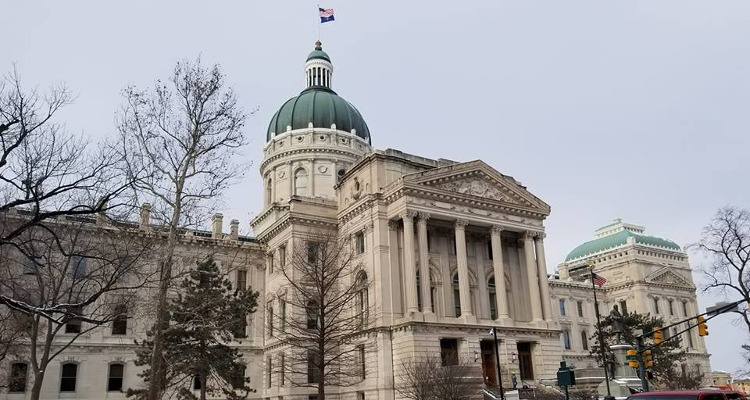In Indiana, senior legislators will reportedly soon consider a measure that could see the Midwestern state become the latest to legalize sportsbetting at its many racinos and riverboat casinos.
According to a report from The Indianapolis Star newspaper, the proposed measure known as Senate Bill 405 was introduced to the Indiana Senate by Republican legislator Jonathan Ford on Monday and would require operators to pay an initial licensing fee of $500,000 alongside an annual duty of $75,000.
The newspaper reported that Ford’s proposal, which would also impose a 9.25% tax on all adjusted gross sportsbetting revenues, was immediately sent to the Indiana Senate’s Committee on Public Policy for review and could soon be put to a vote before the full Republican-controlled Indiana Senate.
The Indianapolis Star explained that Ford’s proposed legislation follows the introduction of similar measures in at least ten other states and like its counterparts would ultimately require a favorable outcome to a case currently before the United States Supreme Court in order to be enacted. That action, Christie v NCAA, involves the state of New Jersey’s attempt to overturn’s 1992’s Professional and Amateur Sports Protection Act (PASPA), which introduced a nationwide ban on all sportsbetting with the notable exceptions of venues located in Oregon, Delaware, Montana and Nevada.
The newspaper reported that Indiana was the second state behind Virginia to pass legislation for the regulation of real-money fantasy sports while detailing that Ford’s Senate Bill 405, which would not forbid wagering on collegiate sports, is soon set to be followed by an almost identical proposal for the Indiana House of Representatives courtesy of fellow Terre Haute resident Rep. Alan Morrison.
Matt Bell, President and Chief Executive Officer for the Casino Association of Indiana, reportedly told The Indianapolis Star that the legalization of sportsbetting would not result in large amounts of extra tax revenues but would help casinos in the state to attract more-reluctant customers.
“We have to be reasonable in the way we address sportsbetting and its taxation as well, both in terms of entry into the market and how we tax it as a state,” Bell reportedly told the newspaper. “Its benefit is that it will be driving customers to a property who wouldn’t be there, who will spend incrementally in other ways. That’s where the state will realize a benefit.”



